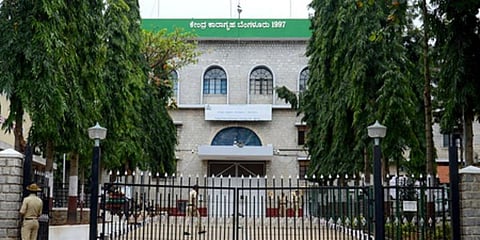

BENGALURU: At least 184 women in Bangalore Central Prison at Parappana Agrahara wait anxiously for vocational training and skill jobs to resume. Since early 2020, all vocational programmes were stopped because of the pandemic, leaving many women with no money to avail legal help or pay those taking care of their children, husbands or ailing parents.
The prison used to have limited activities - like making paper bags, embroidery and bakery- for women prisoners, who could earn about Rs 3,000 a month. But now they are left with nothing.
Soumya (a woman prisoner out on parole) from Kolar says some women inmates cannot afford to buy basic hygiene supplies. Families do not even contact them. There are many who can't afford legal services as they don't have money.
She cites the example of one woman prisoner who was shifted from Tumkur prisons where prisoners were making incense sticks. Rs 10 was given per packet which included 120 sticks.
"Although meagre, she earned a few thousands a month. She could send money to her mother who took care of not only her husband who doesn't have an arm and suffers from Tuberculosis, but also her two school-going children," Soumya says.
But COVID-19 claimed the mother's life, and the children dropped out of school to work as construction workers. The woman, when out on parole, pawned the little jewellery she had for her husband's treatment, and is now left with nothing. "Prison officials need to think of industries which can come and train us. There are quite a few we have heard doing that for prisoners in other states," says Soumya.
Vocational and skill training classes for women inmates not only create a positive environment, but also keep inmates busy, making them skilled and financially independent. So, when they are released they can start life afresh and earn a living.
"We were unable to take any orders from NGOs or private agencies during the pandemic, or allow outsiders to come and train these women for skilled jobs," says a senior prison official, requesting anonymity.
"Space, too, is limited to put up textile machines. We admit more such courses are needed. There were also fights among women prisoners during bakery sessions. So we closed the entire kitchen and bakery area. The option is is now available only for male prisoners," the officer told The New Indian Express.
Another woman prisoner Rekha (name changed) says safety is another issue. "Women are not allowed to step out of the women’s barrack zone. While men have bigger space, we are restricted within four walls. We also need to be kept engaged," she says.
Chief Superintendent of Prisons P Ranganatha says, "We are going to resume activities soon. Once the Covid situation settles down we will move the women prisoners to a new prison where they can learn baking and other courses."
DG (Prisons) Alok Mohan says that all vocational courses will restart. "There is more than what was happening earlier being planned. Nearly 25 courses will soon come up for prisoners," he adds.